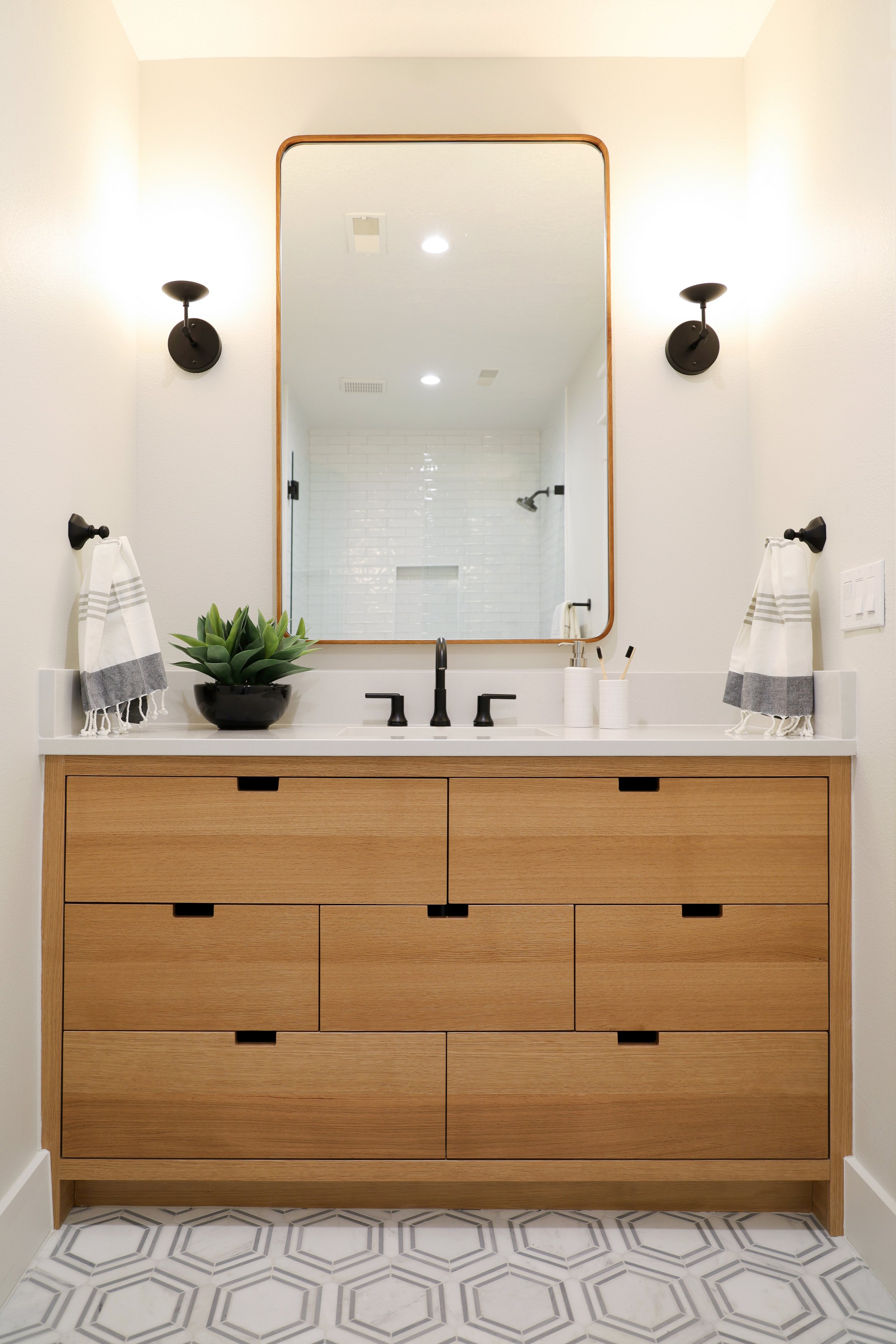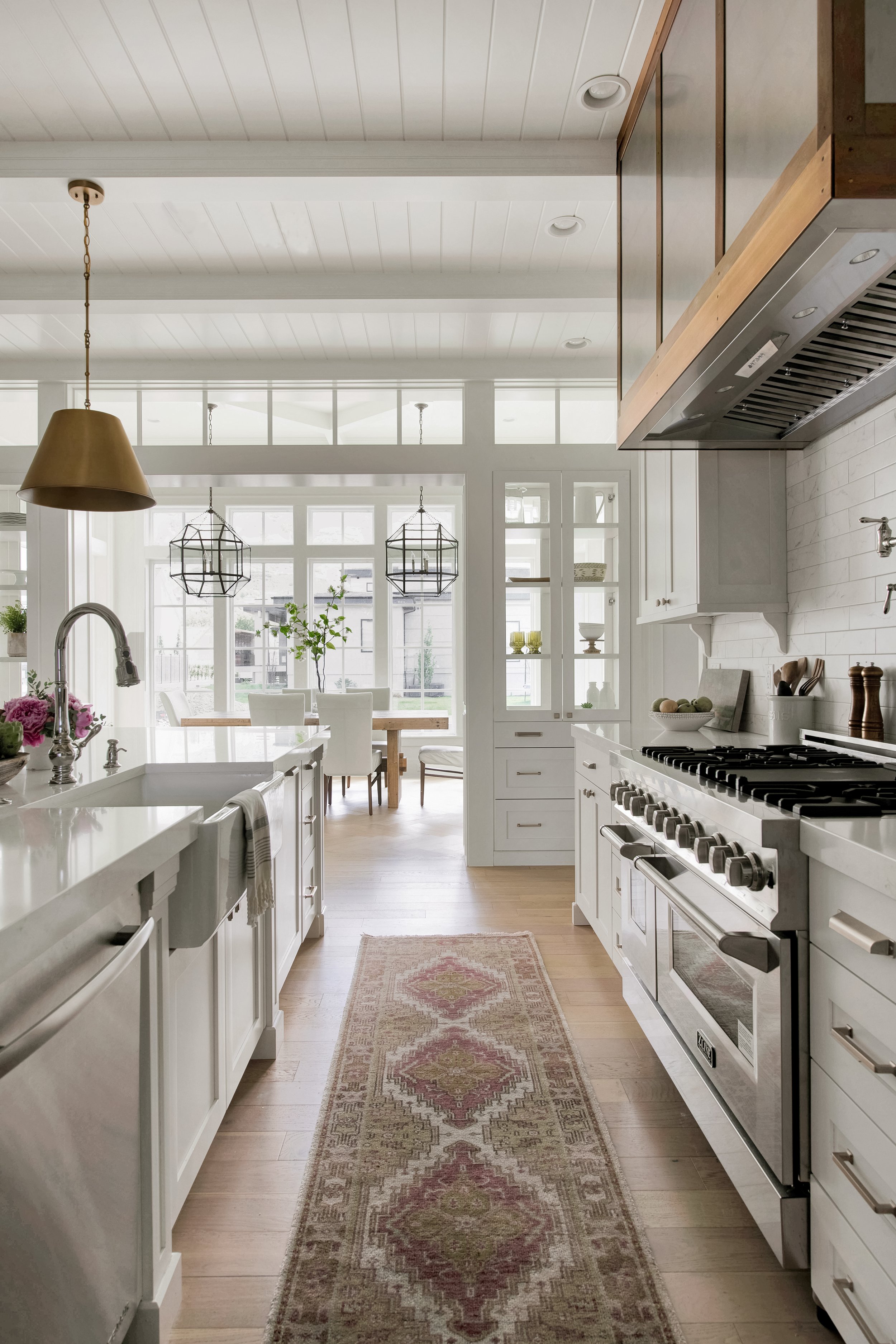Well-Being Through Minimalism|Designing a Clutter-Free Home
As the holidays near, stress levels can increase. Creating a minimalist focused lifestyle and design philosophy can help reduce the stress so you can focus on what really matters. Minimalism in design can advocates for simplicity, intentional living, and the reduction of excess in various aspects of life, including material possessions, design, and daily habits. Embracing minimalism can lead to reduced stress and increased well-being in several ways. Our Utah-based team at Bluerock will help you design a purposeful home that caters to your daily habits so you can focus less on your house, and more on what’s important to you.
Decluttering and Simplifying
Minimalism encourages the removal of unnecessary belongings, both physical and mental. When you declutter your living space, you create an environment with fewer distractions and less visual chaos. This promotes a sense of calm and reduces the stress associated with managing and maintaining excess possessions.
Enhanced Focus
With fewer physical possessions and distractions, you can focus more on the things that truly matter to you. Minimalism helps you prioritize your goals, values, and relationships, leading to a greater sense of purpose and fulfillment.
Reduced Financial Burden
Minimalism often involves spending less and saving more. By curbing impulsive spending on non-essential items, you can reduce financial stress and work towards a more secure and comfortable future.
Increased Time and Energy
A minimalist lifestyle can free up time and energy that might otherwise be spent on shopping, organizing, and cleaning. This extra time and energy can be redirected toward activities and experiences that bring joy, meaning, and relaxation.
Improved Organization
Minimalism encourages systematic and intentional organization. When your physical and digital spaces are well-organized, you can find what you need more easily, reduce the mental load of searching for items, and maintain a sense of control and order in your life.
Less Decision Fatigue
By owning fewer items and simplifying daily routines, you can reduce decision fatigue. Fewer choices lead to less mental stress, as you don't have to constantly make decisions about what to wear, what to eat, or what to do.
Mindful Consumption
Minimalism promotes mindful and intentional consumption. Before acquiring new possessions or taking on new commitments, you're encouraged to consider their value and whether they truly align with your goals and values. This mindfulness can lead to more purposeful choices and a greater sense of well-being.
Emphasis on Experiences and Relationships
Minimalism encourages a shift in focus from material possessions to experiences and relationships. It promotes spending time with loved ones, creating memorable experiences, and nurturing meaningful connections, all of which can contribute to happiness and well-being.
Environmental Benefits
Reducing consumption and waste is an important aspect of minimalism. By producing less waste and choosing sustainable options, you can contribute to a healthier environment, which can have a positive impact on your overall well-being.
Personal Growth and Self-Discovery
Minimalism often leads to self-reflection and a deeper understanding of one's true desires and values. This self-discovery can result in a more authentic and fulfilling life.
In conclusion, minimalism is not just about having less; it's about living with intention, purpose, and mindfulness. By simplifying your life and letting go of excess, you can create a living environment and mindset that reduces stress, enhances well-being, and allows you to focus on what truly matters to you.







